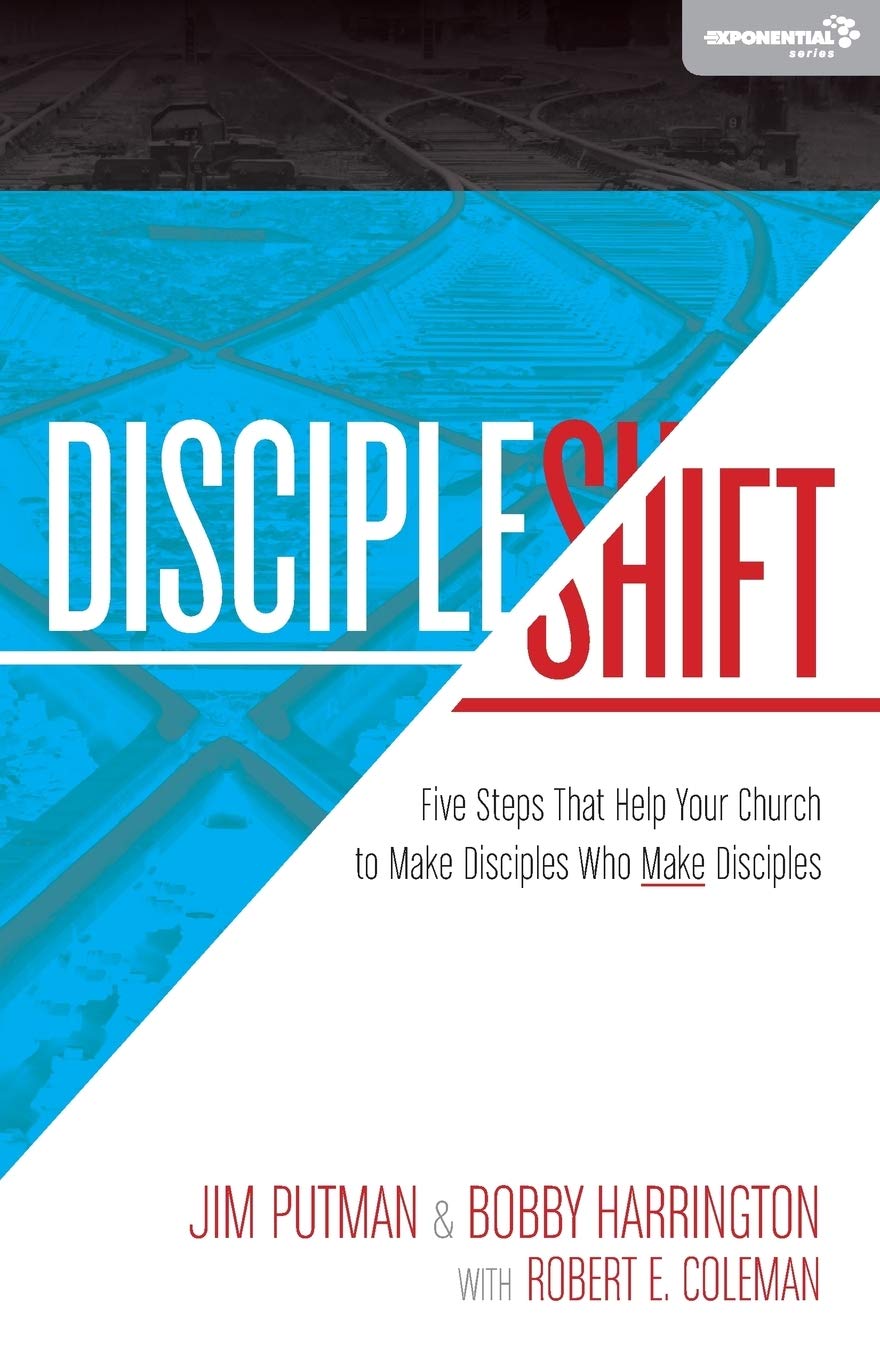
DiscpleShift
By: Jim Putman & Bobby Harrington with Robert E. Coleman
- Intentional discipleship is a must in our churches. Most church growth strategies (books, conferences, etc.) have no discipleship involved.
- You must determine what a disciple should look like so you have a goal to aim at.
- Spiritual parents are not perfect, they are simply people striving to grow in their spiritual life.
- A spiritual parent usually knows where a person is on their journey in life, where they should be, and how to get them there.
- One just needs to be one step ahead of someone else in order to disciple them.
- What does spiritual maturity look like? It is what we imagine the Lord would do if he was here upon the earth.
- Our goal is to present others mature before Christ (Colossians 1:28).
- Everyone is saved for a purpose.
- A disciple should grow in four areas of life according to Ephesians:
-
-
- His relationship with God.
- His relationship with God‘s family, the church.
- His relationships at home.
- His relationship with the world.
-
- As a disciple maker you should express your goal of making that person more mature and like Jesus.
- As a disciple maker you must look at the man in the mirror (you).
- We must be careful that we are not merely informing people, rather equipping them.
- The pastor sets the tone for spiritual maturity, and the same goes in disciple making.
- We are not to just shepherd others but create an environment where others are shepherding others.
- How you act as a leader is determined by who you are, your character.
- The pastor must be immersed in the Word of God, yielded to the Holy Spirit, and in relationship with others. The last is often forgotten because we don’t want to be transparent and accountable to others.
- As a leader you must model or live out what you teach and preach. As the head goes, so does the body. 1 Corinthians 11:1
- Ephesians 4:11-13 should be a key verse for a disciple maker. Your responsibility is not to simply to be a star on the team but to build up others who will lead and do the work.
- Do you want to be the star athlete or coach? You must teach and release others to be the boots on the ground for the work.
- We are trying to make disciples, not just converts.
- A pastor must be a leader developer. Many of the leaders are already in the church, they are just overlooked or undeveloped.
- Most pastors are too busy in the church doing the work themselves, so they do not have time to develop other leaders.
- The difference between a high school coach and a college coach is that a high school coach must develop players he has within his team; a college coach travels to find and recruit/develop players to play on his team. Most pastors play the role of a college coach by recruiting from the outside instead of developing those from the inside.
- What you celebrate is what your people will aspire to. Many churches celebrate attendance, buildings, offerings, etc., but if you will celebrate how many people are getting connected into discipleship, you will see the fruit from that.
- A pastor must not only cast the vision for the church, but constantly guard or defend that vision.
- As a pastor, you cannot disciple everyone yourself so you must teach others to disciple.
- Even though Jesus spoke to crowds of thousands, that was not the focus of his discipling. His focus was with his disciples, and that is clear all throughout the gospels.
- We must move discipleship from being an institutional program to a personalized habit.
- We should teach and expect for disciples to continue the process and disciple others. Jesus taught his disciples to disciple others. A mature disciple is one that disciples others.
- Every disciple has the capability and responsibility to minister to others.
- Ask yourself how every ministry in your church connects people to discipleship.
- You must understand the scorecard in discipleship. The point comes when they are deployed to go out and disciple others – not start a new church, but finish discipleship themselves and begin discipling another.
- It is more important to evaluate how many people go out instead of how many people show up.
- A pastor should not just be a teacher but a coach.
- We must transfer our scorecards from attracting and gathering to discipling and releasing.
- You should constantly access, correct course, and encourage.
- The shift must be from gathering a crowd to deploying disciple makers who will disciple others.